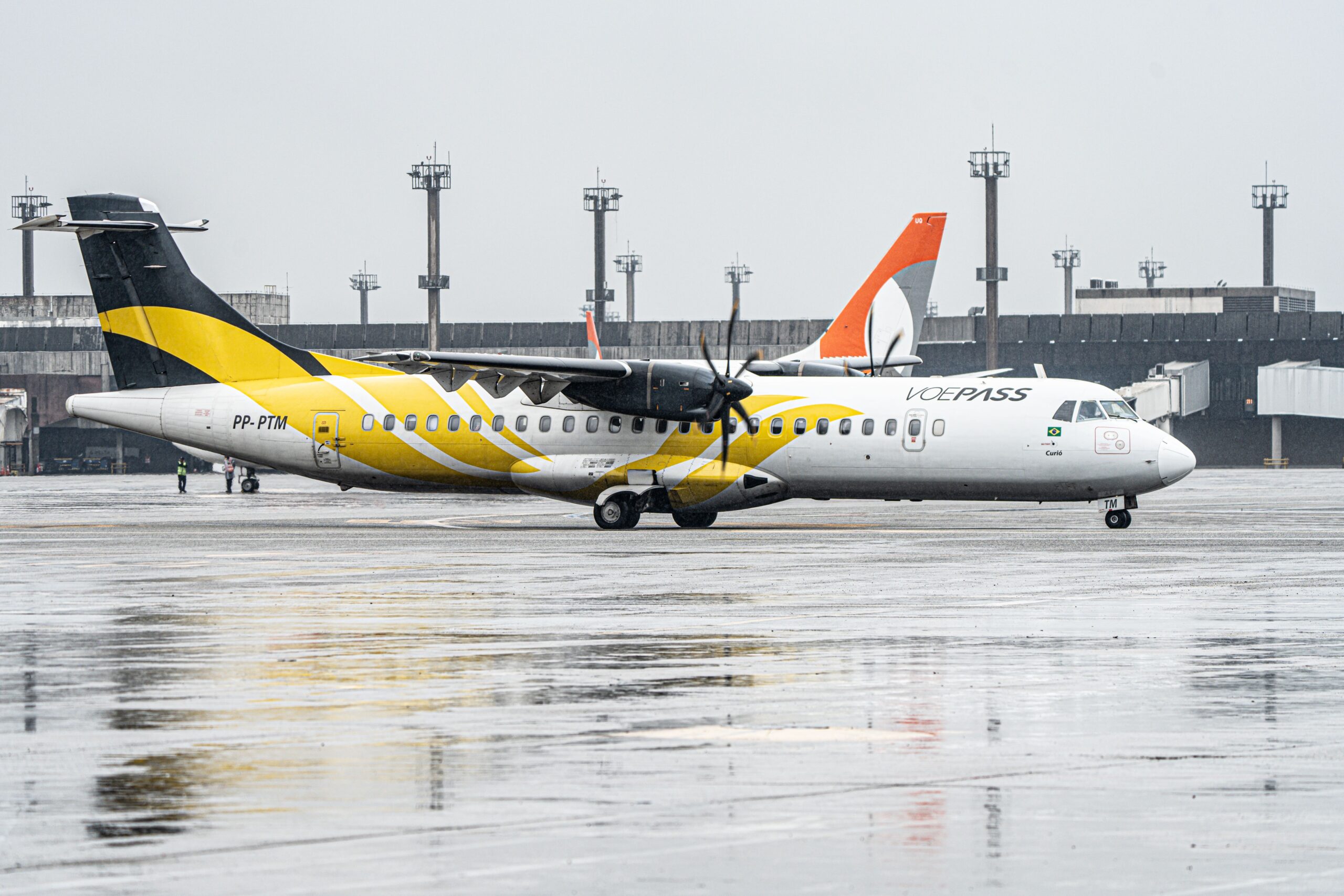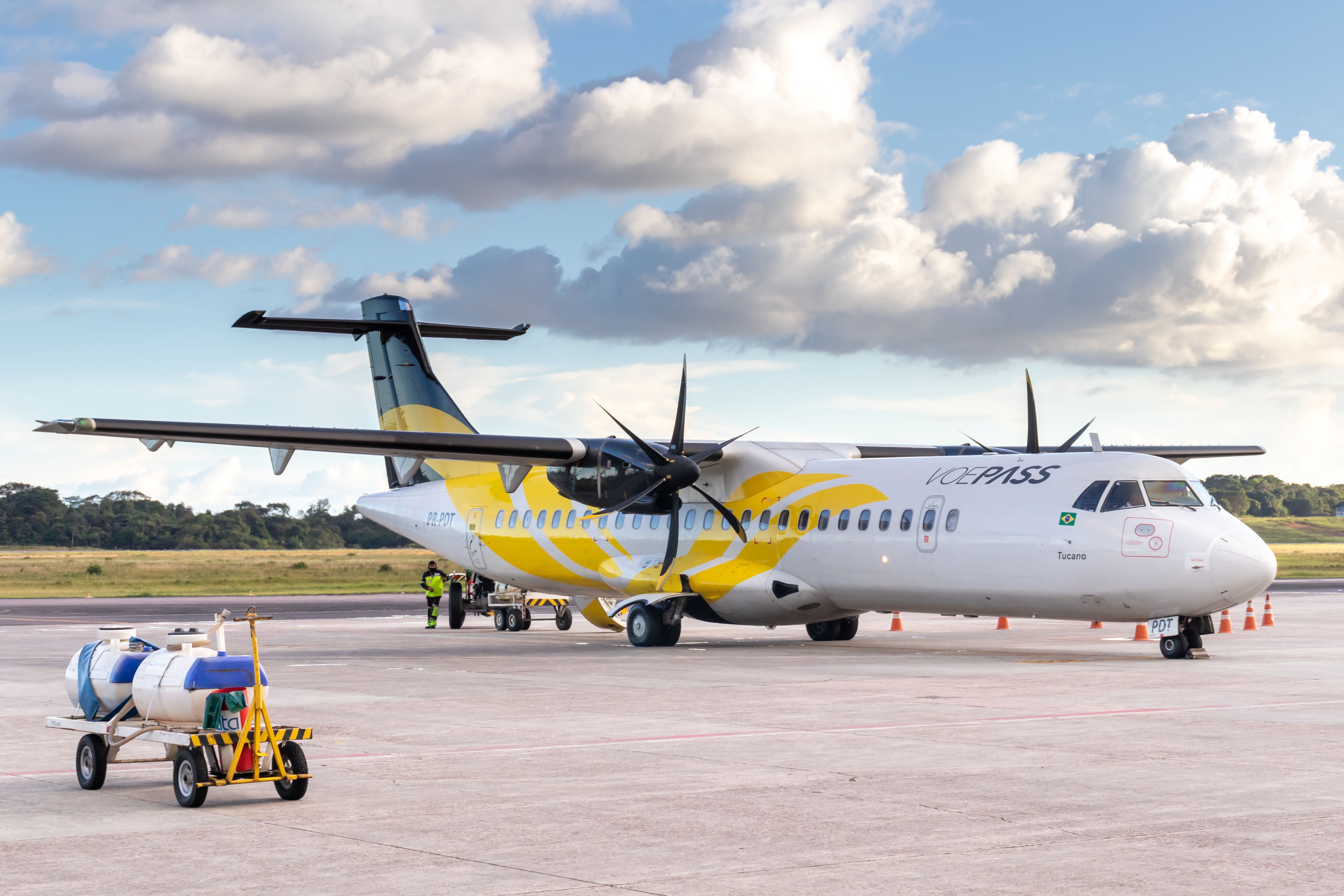Brazil’s Centro de Investigação e Prevenção de Acidentes Aeronáuticos has released its preliminary report on last month’s Voepass ATR 72 crash. The report determined that the aircraft’s icing detectors were on.
Preliminary report
Last month, an ATR 72-500 crashed in the state of São Paulo, Brazil, taking the lives of all 62 onboard. Following the crash, rumors surfaced that the aircraft went down because of ice buildup on the wings, but these were just rumors. Earlier today, the Centro de Investigação e Prevenção de Acidentes Aeronáuticos (CENIPA) released its preliminary report into the investigation which confirms there was ice buildup.
Despite there being buildup on the plane, CENIPA said there was no definite cause for the accident. The report states that icing detectors were activated on the plane before it went down. During a press conference, one of the CENIPA officials stated that on the cockpit recordings, they found the first officer had mentioned a lot of ice.
Photo: Tarcisio Schnaider | Shutterstock
There is the possibility that the plane’s de-icing systems failed, but that needs to be confirmed. The Brazilian investigative agency said that the investigation into this accident could take more than a year.
ATR issued a statement, saying,
“ATR has been informed of the publication of the preliminary report issued yesterday by the Brazilian investigation board CENIPA, related to the accident of the ATR 72-500 operated by Voepass, occurred on August 9th. ATR re-affirms its full support to all the authorities involved.”
About the accident
The ATR 72-500 was flying from Aeroporto Regional do Oeste (CAC) in Cascavel to Aeroporto Internacional de São Paulo – Guarulhos (GRU) and had 62 people on board, including the crew. As the aircraft was flying over Vinhedo, it lost control, spun, and plummeted to the ground. The accident took the lives of everyone on board but did not kill anyone on the ground, despite crashing in a residential area.
Photo: Leonid Andoronov | Shutterstock
This was the first commercial aviation incident in Brazil since TAM 3054, which killed 187 passengers in 2007. The Airbus A320 flying for TAM landed in Congonhas while it was raining and the aircraft slid off the runway, colliding with one of the airline’s buildings across the street from the airport.
Recent airline news
The United States Department of Transportation (USDOT) has continued its crackdown on airlines and launched an inquiry into frequent flier programs. The agency was led to
launch an investigation following recent devaluations of points and miles
. Now, the DOT will require airlines to justify all devaluations made in the last six years.
Transportation Secretary Pete Buttigieg said,
“These programs bring real value to consumers, with families often counting on airline rewards to fund a vacation or to pay for a trip to visit loved ones. But unlike a traditional savings account, these rewards are controlled by a company that can unilaterally change their value. Our goal is to ensure consumers are getting the value that was promised to them, which means validating that these programs are transparent and fair.”



